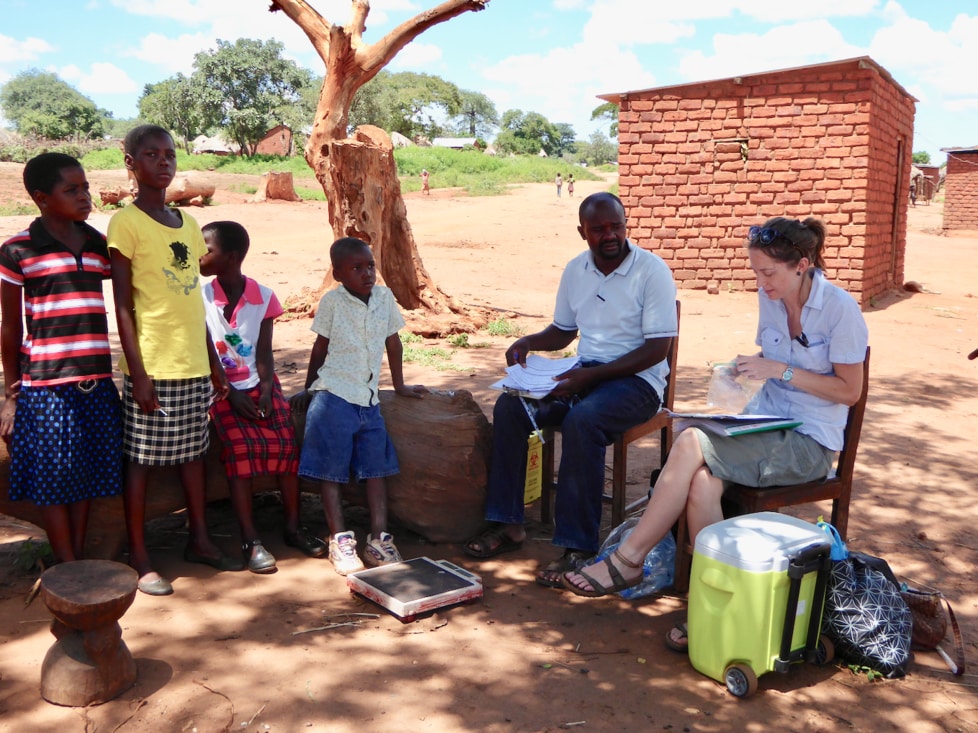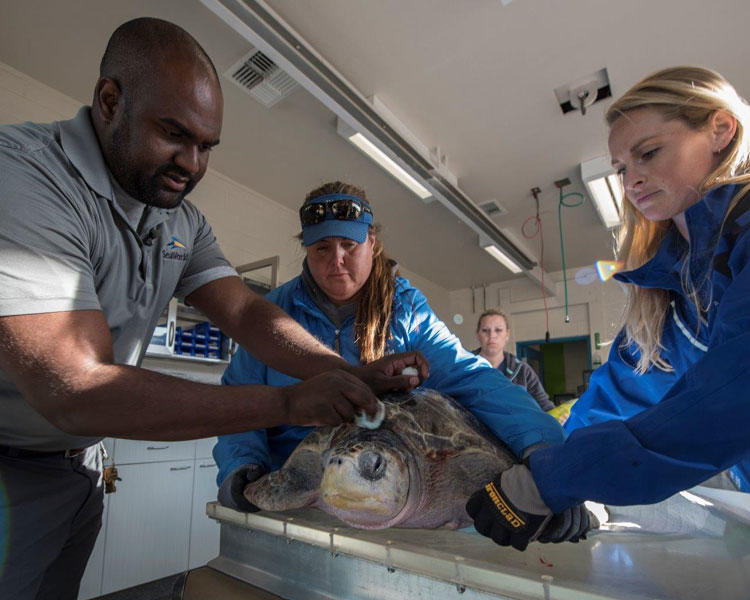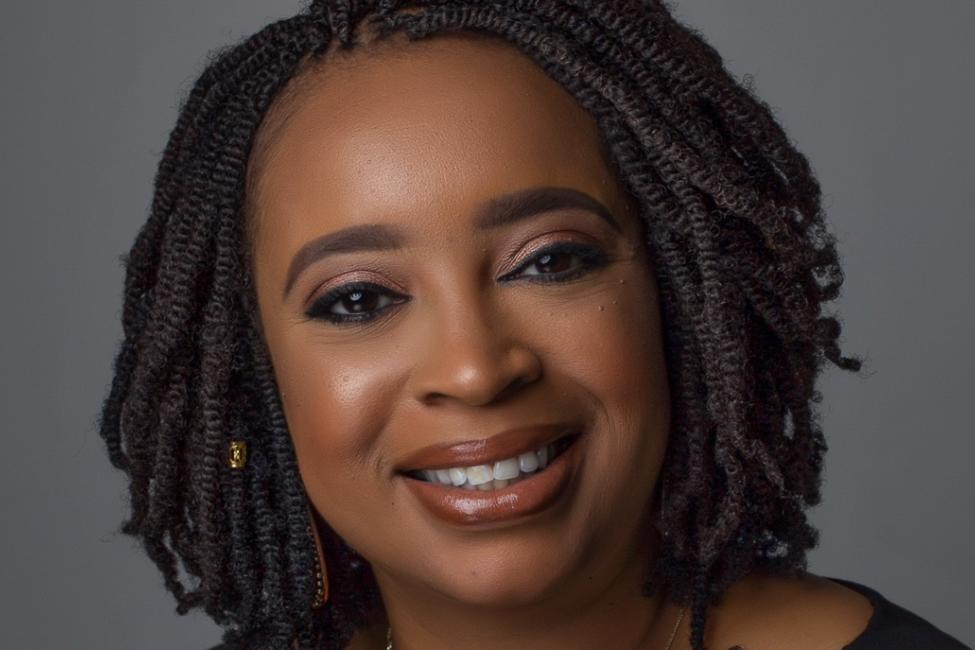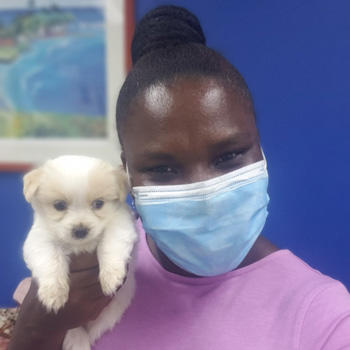Dr. Emma Hobbs is among the first three Ph.D. candidates who successfully completed the Ross University School of Veterinary Medicine (RUSVM) Research doctoral degree program. The Australian veterinarian started the 3.5-year study after completing her Masters in International Animal Health at the Edinburgh University and earlier research work in the transmission of schistosomiasis between humans and chimpanzees in Africa.
Why did you choose RUSVM?
For my MSc dissertation project I joined a field-based research project that investigated a hyperendemic focus or 'hotspot' of Taenia solium (the pork tapeworm) infection in a remote community in Lao People’s Democratic Republic. It was an Australian government-funded program, but we also corresponded with Associate Dean of Research - RUSVM, Dr. Arve Lee Willingham, who is a known expert in this field. Later, while I was emailing various universities about the possibility of taking up a One Health Ph.D. position, I received a reply from Dr. Willingham who happened to have funding for a Ph.D. student. It was really a case of the stars aligning!
Can you provide an overview of your research?
My Ph.D. project was conducted within the scope of CYSTISTOP, a Belgian-led initiative that focused on comparing the effects of an integrated, high-intensity human- and pig-based Taenia solium interventional elimination strategy versus a lower-input, pig-only control strategy in the highly endemic Eastern Province of Zambia. The nature of T. solium demands a One Health approach, which really appealed to me, and I also loved the idea of returning to Africa for the fieldwork. We conducted baseline sampling surveys to determine the level of disease in the human and pig populations of the study areas, and then returned every four months for two years, to deliver the interventions. The project also had a substantial social sciences and educational component, which I really enjoyed in addition to the biomedical aspects. We had our final field visit in January of 2018 to evaluate the impact of the interventions, and the results were fantastic - we significantly reduced active transmission of the parasite in the elimination study arm, and eliminated the active infection in the pig host! It was a lovely story to write up for my thesis, and hopefully, the longer-term results of the project will be able to inform policymakers as to the best way forward for control of T. solium in Zambia.
What were some highlights during your research study?
I was lucky enough to spend two weeks at the US Centers for Disease Control and Prevention (CDC) in Atlanta, Georgia in 2015, doing lab training for serological diagnosis of Taenia spp. I was also able to attend and present my research findings at various international scientific conferences and meetings, including the International One Health Congress meetings in Melbourne, Australia and in Saskatoon, Canada. I lived for one year on St Kitts and then relocated to Belgium for the final two years, so I have had a truly international student experience and have made lots of friends from all over the world! But perhaps the most meaningful aspect for me was spending so much time in the study communities in rural Zambia. I'd been studying T. solium for some time but it was really only when I was out in those villages, speaking with people whose health and families had been so badly affected by the parasite, that it truly hit home how significant the problem is, and how our interventions were really making a positive difference to these peoples' lives. That's something that you can never really appreciate while just studying the theory from the comfort of your desk.
How has the RUSVM team supported you during the program?
Since the beginning of my doctoral studies, I've had fantastic support from Dr. Lee Willingham and Dr. Jennifer Ketzis (my RUSVM supervisors), as well as from the research team on campus - most notably Ms. Robin Alexander and Ms. Ruth Braganza. Moving from Australia to St Kitts and then to Belgium, with loads of travel to Zambia and other places for conferences in between, came with lots of administrative hurdles but the team was always very quick and willing to help.
Tell us about your time on the island?
I must confess I'd never even heard of St Kitts before getting in touch with Dr. Willingham about the Ph.D. program, but what's not to like about an island in the Caribbean?! I first visited St Kitts in November 2014, to meet with Dr. Willingham to discuss the Ph.D. options and also to attend/present at the West Indies Veterinary Conference. Both during that visit and while living there in 2015, I really enjoyed my time there! As an Aussie, I have grown up with hot weather and gorgeous beaches so in one sense I felt right at home on St Kitts. But I really enjoyed exploring the island and learning about some of the history of St Kitts and the region, as it's not somewhere that had ever been on my radar before.
What’s one thing you’d share to students entering the program?
The main piece of advice that I'd have for prospective students is to really throw yourselves into all the opportunities that come your way. As a student, all sorts of doors are open to you including volunteering positions, internships, studentships, assistant positions with research projects, summer schools, conferences, etc. They're fantastic ways of gaining new experiences and skills and making all-important networking connections that might help you out later in your career. If you already know what area you want to specialize in, then great - by all means focus on that. But for those students who are not quite sure of what direction they want to go down like I was, these kinds of opportunities can really open your eyes to what is out there, and you may just stumble across your perfect career niche. So: put yourselves out there and make the most of your opportunities!
What’s next for you?
Having lived abroad for most of the last 10 years since graduating from veterinary school, I feel like the time has come to return to Australia, at least for a while. 2019 is a bit of a blank canvas at the moment but I'm really looking forward to seeing what adventures are in store!
 Dr. Emma Hobbs earned her Ph.D. from Ross University School of Veterinary in collaboration with Ghent University and the Institute of Tropical Medicine in Antwerp, Belgium.
Dr. Emma Hobbs earned her Ph.D. from Ross University School of Veterinary in collaboration with Ghent University and the Institute of Tropical Medicine in Antwerp, Belgium.







